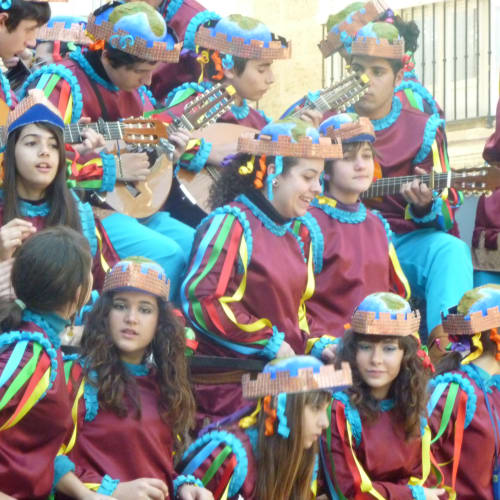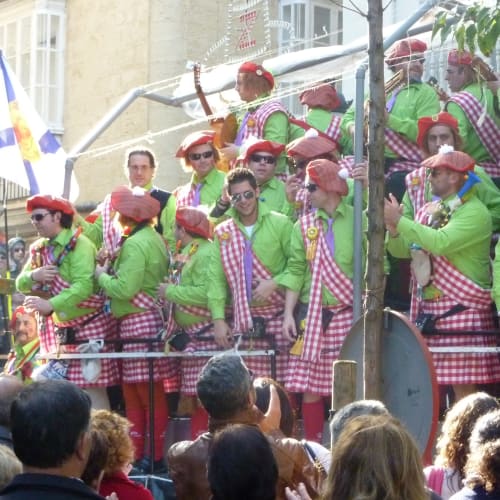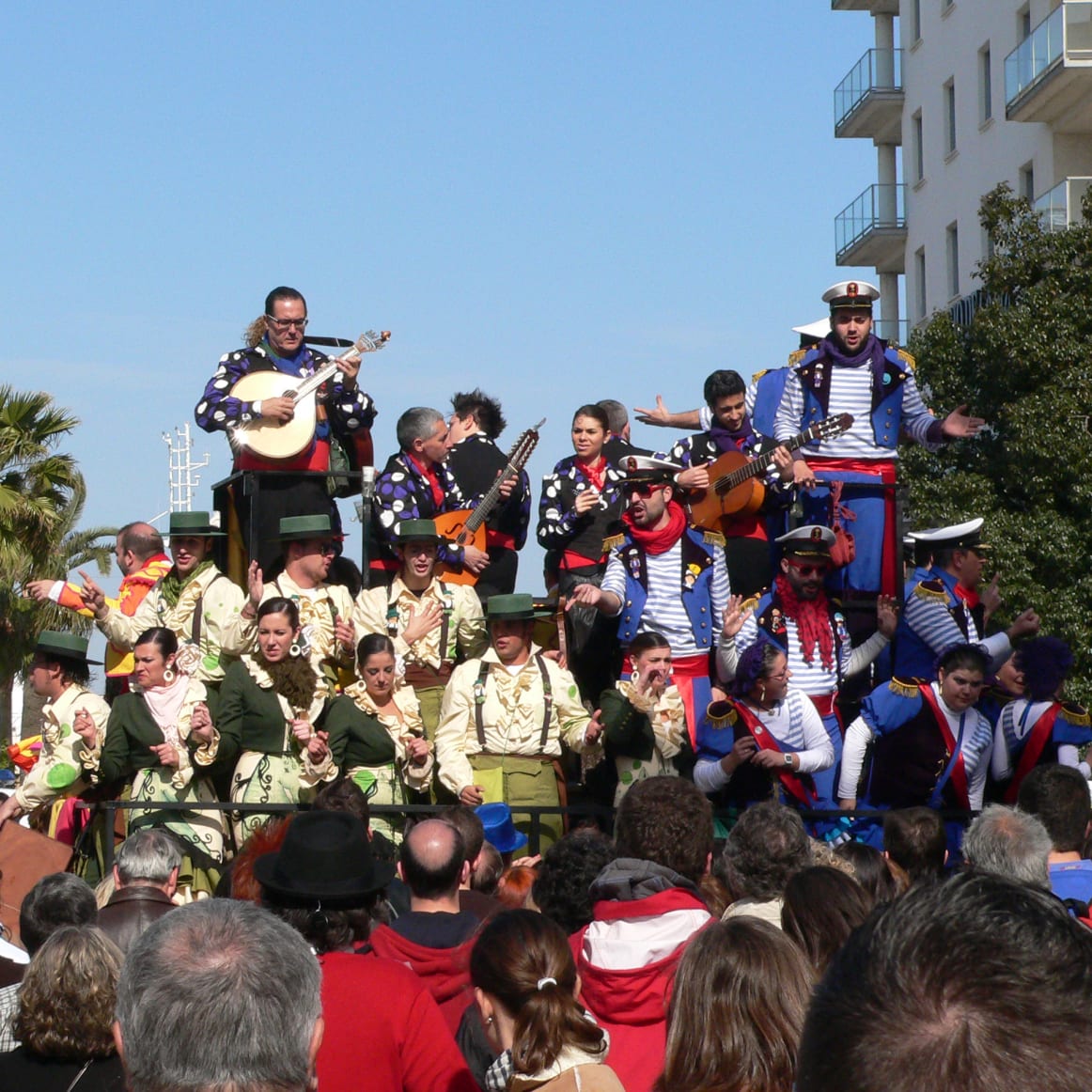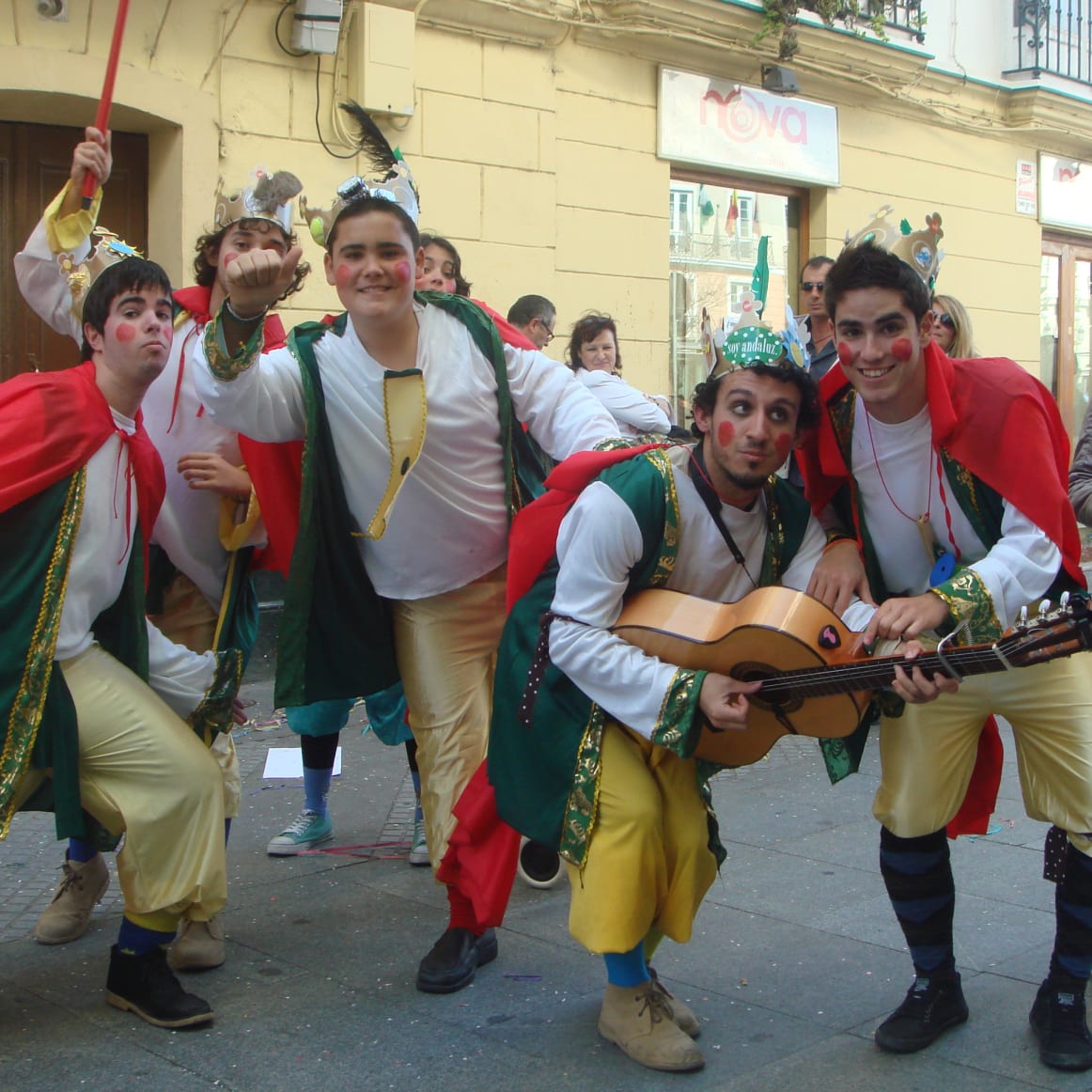Three Kings Sale - Up to 40% Off! Shop Sale
Carnaval in Cadiz
March 2009




Within the medieval walls that separate the winding streets of ancient Cádiz from the modern world, I welcomed in the Millennium with my wife Ruth, nine years ago. Our celebration in Cádiz was so magical that we returned the next year, 2001, to participate in its legendary Carnavál, which has been occurring uninterrupted for centuries, even in the most difficult of times.
The unique feature of the Carnavál are the musical fraternities - groups of men, young and old, who rove the cobblestone streets of this ancient seaport singing satirical and entertaining songs based on the events of the day. One group we saw last time was dressed as the First US Cavalry, with packs of Marlboros in their holsters rather than pistols! References to Monica Lewinsky punctuated their satirical songs.
Every week for the rest of the year in this beautiful sun-drenched port situated on a dramatically narrow spit of land, the men sing together in their neighborhood clubs, perfecting their musical presentation for the next Carnavál, and enjoying each other’s company over a glass of beer or Manzanilla.

We decided this year to return to the Carnával to see how durable the tradition remains battered as it is by the storms of post-modernity that are sweeping across the kingdom. Since 2001 many more young women have left home for the workforce, and the peseta has given way to the euro - leading to unparalleled wealth from a booming economy. This set the stage for a radical political shift that has dismantled many long-established social restrictions, such as abortion, divorce, and homosexuality. With such a tumult of change, we wondered whether the traditional values of the Cádiz community were still intact.
You and I are living in changing times, more far-reaching than we realize. To appreciate fully the solemnity of Semana Santa/Holy Week, the gaiety of Carnavál and even the ritual of the bullring, I think it is important to place these events within the context of the rural society from which they came. There are people alive in the villages of Spain who still recall this vanishing way of life that prevailed for well over a thousand years.
A helpful benchmark, which helped me make the mental shift to a pre-industrial mindset, was the astonishingly beautiful and profound movie Tree of Wooden Clogs, which I picked up at Netflix the other day. It is a poignant look at European rural life a century ago, and the hardships facing three families as they bonded together to survive. It is a masterpiece filmed in Italy. Just as easily, it could have been filmed in Spain. I urge you to see it.
Two realities portrayed in the film stood out for me. First, I realized how fully communal was the life of these people, in the best sense of the word. They were their brother’s keeper, working together long and hard to make their lives worthwhile in an unrelenting environment. Their only respite was when the families came in from the fields and their chores, to gather around the fireplace, while a grandfather or another elder would delight the children with tales and ghost stories. They were people who, without a second thought, included even the lame and mentally disabled within their family circle. Our insistence on personal autonomy and individual rights would have been incomprehensible to them.
The second reality that became clear to me was how tied they were to the natural order of the seasons: planting, tending, harvesting and resting before the cycle began once more. They had no time for dreams of social mobility. There was no “time” at all, as we think of it. No clocks marking hours and minutes - just sunrise to sunset. Their unquestioning faith sustained them. Their local parish provided the markers of life: Baptism, First Communion, Matrimony; Advent, Christmas, Lent, and Easter. There was no omnipresent electronic clock, which is as close to us as our cell phone, or this computer.

In this context, Carnavál was not merely a party event for an individual’s amusement. Everyone in the community was celebrating their mutual survival after another hard winter. They could see new life beginning to sprout from the earth and after 40 days of Lenten preparation they would participate in the great festival of the Resurrection which would focus on new life and hope, as reflected in the abundance of the flowers of spring.
Certainly, the waning of the winter months was an excuse for merriment and joy - a big blowout, a sigh of relief - but it was always in terms of the community, not the individual. The traditional concept of the Carnavál in Cádiz is not a no-holds barred time to “raise Cain” and vomit in the street. Instead, even today, you will see as we did, random groups strolling down the winding streets, singing together; or people in a neighborhood coordinating the costumes they wear.
I am not a utopian or a romantic. Not for a minute would I like to trade the opportunities for individual growth that we have today. After all, Ruth’s and my grandparents were emigrants who left their culture in order to improve their lives and those of their children. But, as with everything, this freedom has been bought at a price: individualism and mobility can fray family ties.
What did we find when we revisited the Carnavál eight years later? We found a resilient and prosperous people who are learning to redefine their social boundaries. Some of the traditional social restraint has weakened, but essentially the traditional Carnavál of Cádiz remains intact. Spain has absorbed many waves of culture, and has been the richer for it. I am hopeful that this age-old society, steeped in the traditions of the family and community will emerge intact, strengthened by the modern experience.
During times of less plenty, we in America are learning once more the virtues of taking care of one another. One indication in our country is that more parents are living closer to their grown children and their families. Now that their boom is over, I expect young Spaniards will renew their appreciation of their family culture, as well.
Warmest regards to you and those whom you love.
Don

